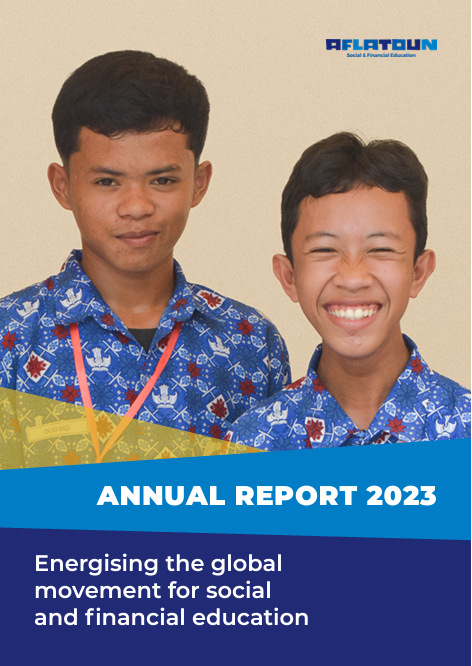From July 2 to 5, 2024, the African Union Commission Headquarters in Addis Ababa, Ethiopia, hosted its first conference focused on the education of girls and women in Africa. This event had delegates convene to assess the current status of girls’ and women’s education across the continent, mobilise support for funding girls’ education, and advocate for the adoption of gender-transformative policies and frameworks at the highest levels.
bnm
Aflatoun led a side event on the third day of the AU PanCoGEd with a session titled “Economic Empowerment of Girls through Social and Financial Education: A Path to Inclusive Learning and Sustainable Development”. Panelists Sengoma Hajara, Bemnet Zerehun, Grace Awawu Saba and Mercy Luhangu Mchechu shared information on the key components of social and financial education, experiences from the field on how social and financial education contributes to the economic empowerment of girls, and how schools, government and communities can collaborate to provide comprehensive social and financial education to girls. Additionally, a 17 y.o. Aflatoun student shared an impact experience on how the social and financial education programme has helped her remain in school. This session brought together a diverse group of stakeholders, including government representatives from the Ministries of Education in Malawi and Ghana, AU officials, civil society organisations, and traditional leaders.
.
Key Recommendations
The panelists put forward several critical recommendations to further the cause of empowering girls through education:
- Integration into School Curricula: National integration of social and financial education into school curricula is essential to ensure that vulnerable children and young people benefit from these crucial skills.
- Teacher Training: There is a need for comprehensive training programmes for teachers to equip them to deliver social and financial education effectively, thus empowering children and young people.
- Multi-Sectoral Collaboration: A collaborative approach involving government bodies, civil society organisations, educators, and the private sector is vital to empowering children and young people with social and financial education.















